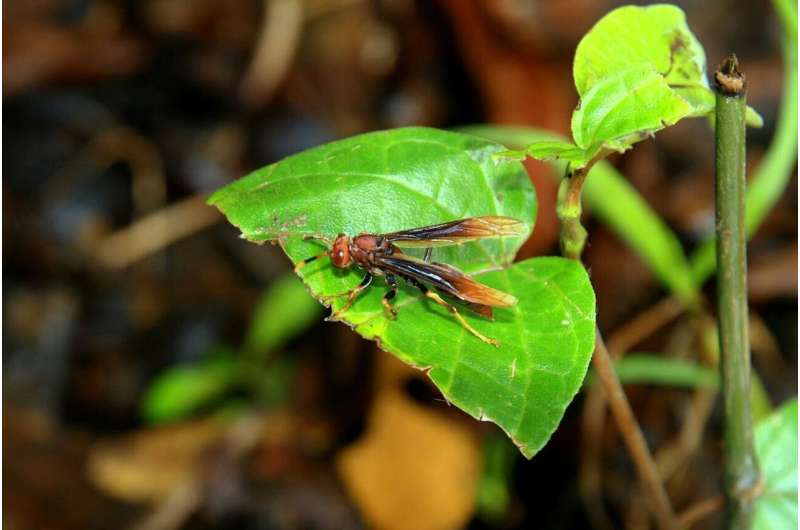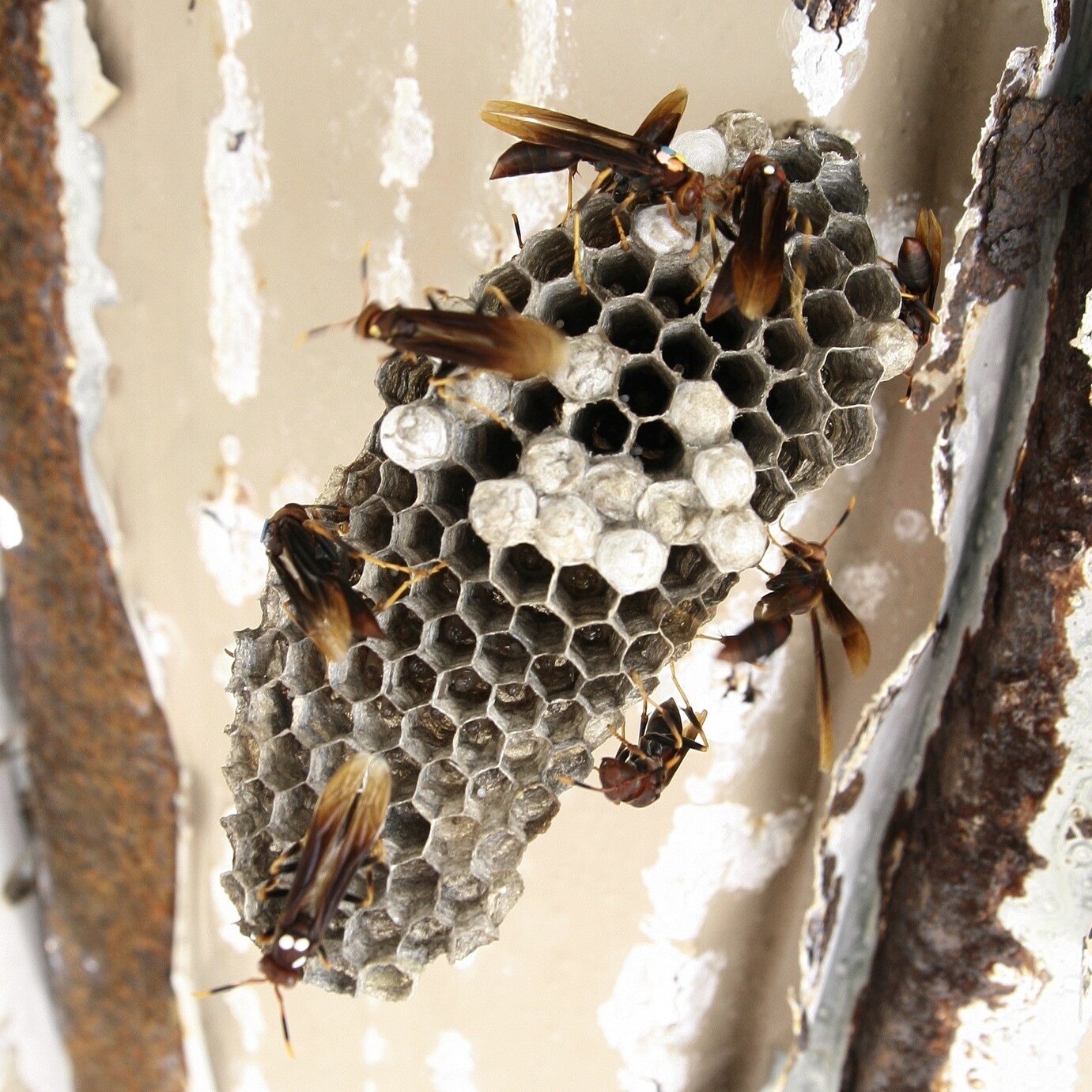Individual wasps on their nest. Credit: Solenn Patalano
An international team of biologists and theoretical physicists from Dresden (Max Planck Institute for the Physics of Complex Systems), Cambridge, UK (Babraham Institute) and Athens (BSRC “Alexander Fleming”) encountered this paradox with experiments on paper wasps. Paper wasps are social insects that exhibit a societal division of labor, with some insects specializing in foraging and other tasks (workers), while a single insect becomes the queen, which specializes in producing offspring.
While this division of labor remains stable for the life of the queen, if the queen is removed from the nest or dies, the remaining workers can quickly change behavior and start a new queen. Because of this behavior, the paper wasp serves as a testing ground for studying biological plasticity.
During field trips to the wasps’ home habitat in Panama, the scientists conducted experiments in which they removed the queen from nest communities and then measured how the remaining worker bees found a new queen.
In these experiments, the research combined various experimental tools such as video recordings and detailed molecular profiling of the insects’ brains to simultaneously follow this process at very different spatial scales of biological organization and investigate the interplay between molecular processes and societal interactions.
“Using social insects to study plasticity gave us a unique opportunity to relate molecular, individual, and societal processes over time at the level of individual insects, which is not possible when studying cells in mammalian tissues,” says Dr . Solenn Patalano, who directed the experiments.

Forager rests on a leaf. Credit: Solenn Patalano
Using theories, the researchers, led by Dr. Steffen Rulands then describes the various processes leading to the establishment of a stable society and the ability of workers to establish a new queen. They found that paper wasps balance the expression of genes that elicit queen-like behavior with aggressive fights that repress the same genes.
Their calculations showed that this enables these societies to distinguish different types of disturbances affecting the nest: Intrinsic disturbances affect insects independently and are actively suppressed by society. External disturbances affect society as a whole, and society reacts plastically.
“It is fascinating to see how these societies manage to combine processes that differ on orders of magnitude to overcome an apparent paradox,” says Adolfo Alsina, who carried out the theoretical work. The knowledge gained from social insects could be used in the future to understand plasticity in other biological systems, for example in the reprogramming of cells into stem cells in regenerative therapies.
The study was published in cell systems.
As ants duel to become queen, behavioral and molecular cues quickly determine who will win
Solenn Patalano et al, Self-assembly of plasticity and specialization in a primitive social insect, cell systems (2022). DOI: 10.1016/j.cels.2022.08.002
Provided by the Biomedical Sciences Research Center Alexander Fleming
Citation: The rise to Royalty: How worker wasps balance specialization and plasticity (2022, September 23), retrieved September 23, 2022 from https://phys.org/news/2022-09-royalty-worker-wasps-specialization- plasticity.html
This document is protected by copyright. Except for fair trade for the purpose of private study or research, no part may be reproduced without written permission. The content is for informational purposes only.
#Rise #Royalty #worker #wasps #balance #specialization #plasticity


Leave a Comment